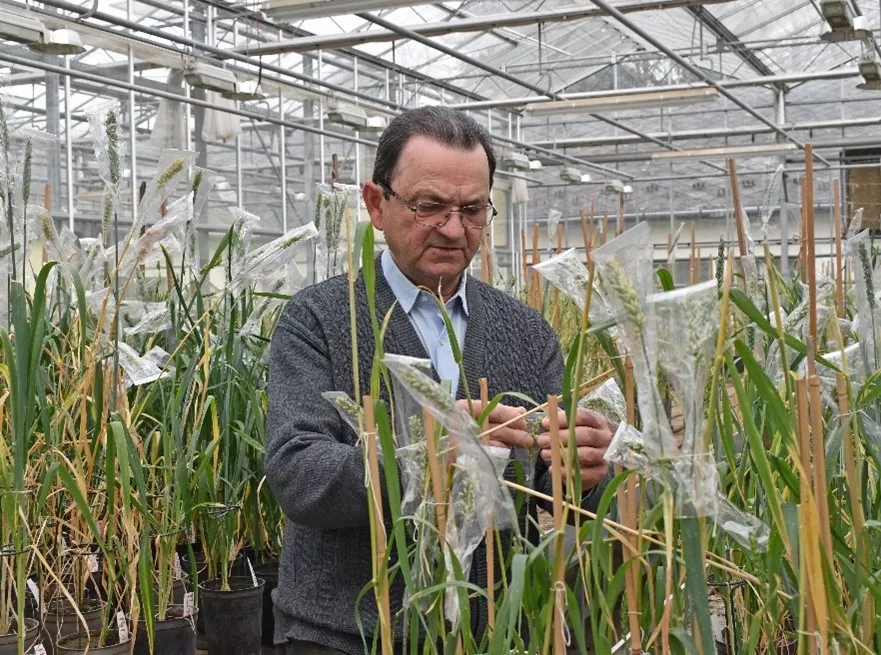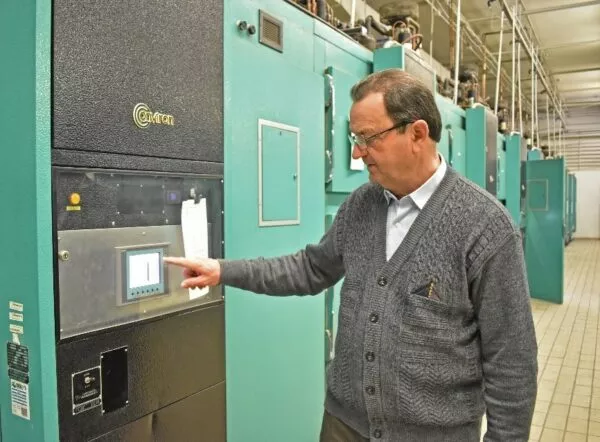The academic Ottó Veisz, director of ELKH Agricultural Research's Agricultural Institute (ATK MGI), provides us with information on the institute's most important milestones, goals and future plans.
The first major achievement of the Agricultural Institute, founded in 1949, was the launch of hybrid corn breeding under the leadership of Endre Pap, with Hungary becoming the only second country to achieve this feat after America, at Martonvásár in 1953. As a result, Hungarian agriculture switched to hybrid maize within six years, and the national average yield doubled in a short time. Most varieties of wheat grown after the Second World War were also created at the institute. Since the late 1970s, though, there has been fierce competition among wheat varieties bred in European countries, yet Martonvásár varieties have been at the forefront since the 1980s.

From the very start, the wheat varieties in Martonvásár have proved to be highly adaptable, helping them to play a significant role in domestic cultivation and become the market leader in Hungary over the last 25 years. In Hungary, wheat is grown on about one million hectares a year, of which around 30-50 percent over the last two decades has been occupied by wheat varieties bred at ATK MGI. This is partly due to the fact that the institute has always strived to produce varieties to meet current demands. Today, in addition to excellent productivity, we have also come to expect breeding of varieties with good milling quality and adaptability.
The internationally renowned Fitotron was built in 1972. It is possible to study the properties of each plant variety in its climactic chambers, independently of external environmental conditions. In addition to basic research, this facility is also a great help in the early stages of breeding.

The institute plays a key role in agricultural research as a wide range of practice-oriented research is based on successful basic agricultural research. In this field, researchers focus on the two most important groups of agricultural crops, hybrid maize and cereals, combining knowledge of genetics, physiology, gene conservation, plant breeding, molecular techniques,and cultivation technology.
“In the 1980s and 1990s, the molecular breeding techniques developed in basic research were adopted by breeding. This method is now routinely used in practice, such as in the production of haploids. In the field of basic research, the technical development of genetic engineering methods is currently ongoing," the director of the institute explains.
The professional goals of ATK MGI have always been closely related to the given environmental challenges and the needs of Hungarian agriculture. Due to the rapidly changing environmental conditions, social and economic expectations, there is a constant need to develop new, innovative technological methods and to explore the possibilities of the direct utilization of scientific findings.
Within the framework of the 2021 Thematic Program of Excellence, the institute was awarded nearly HUF 1.5 billion in support for the development of eco-stable plant varieties and integrated, sustainable cultivation technologies that are also competitive in international markets. This professional program covers the basic and applied research areas of the institute almost in their entirety. The researchers are studying the reproductive, physiological, biochemical and molecular biological background of the tolerance of maize and cereal cultivars grown under certain environmental conditions. Building on these findings, they aim to breed maize hybrids and cereal varieties that can provide adequate cultivation results even in the diverse agro-ecological conditions of the Carpathian Basin. A further aim of the program is to develop a system of expert advice in which professionals can directly assist farmers in their work with recommendations about cultivation technology.
The director is optimistic about the future. He believes that as an area of strategic importance, Hungarian crop production requires an independent, strong research center in order to remain competitive. Its main professional goals include expanding collaborations, improving competitiveness, bolstering publishing activities, coordinating basic and applied research, and supporting infrastructural development.
Dr Ottó Weisz joined the institute in 1979. Looking back over the past four decades and with the present in mind, he is proud of the institute's achievements, his former teachers, his staff, and the recognition that has helped make the institute a flagship among agricultural research institutes.